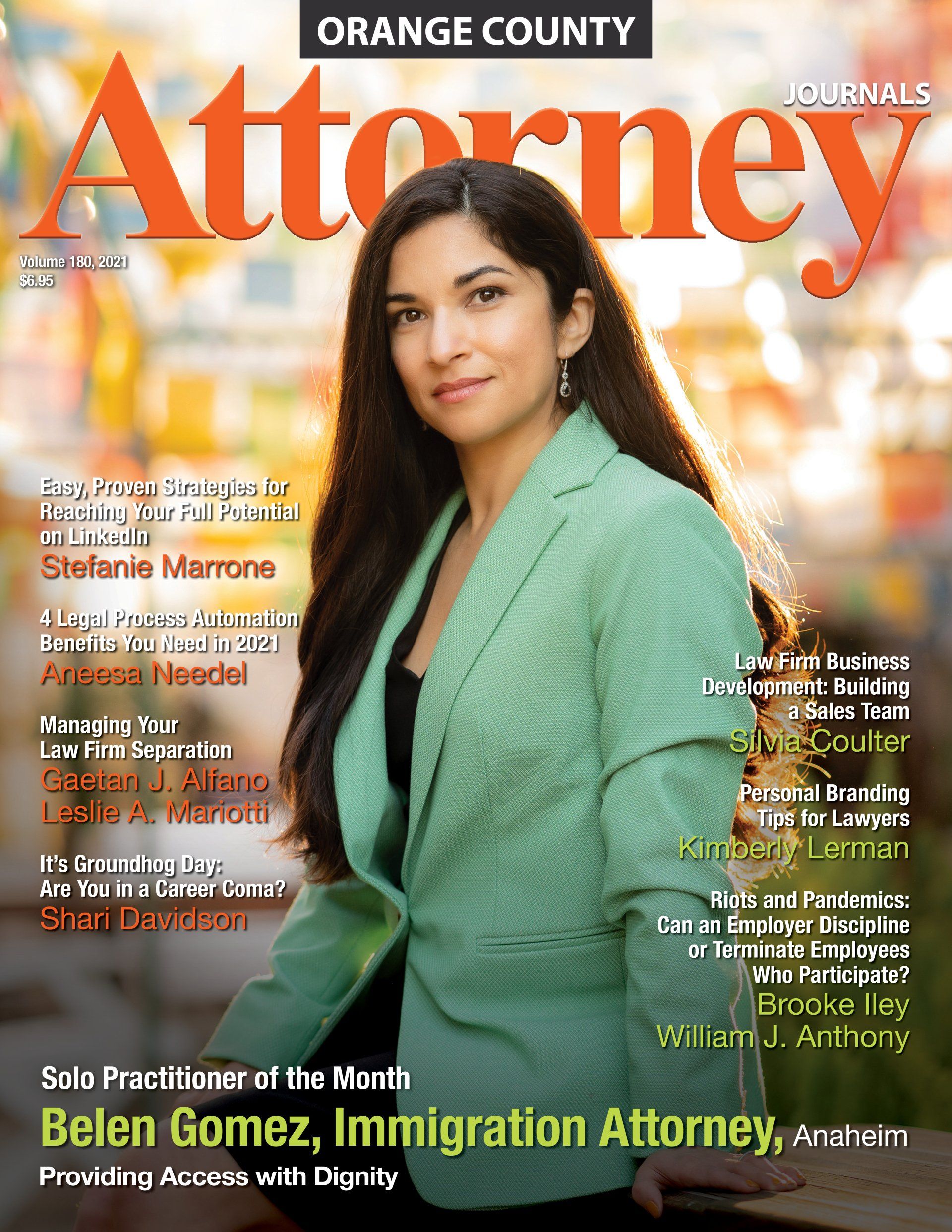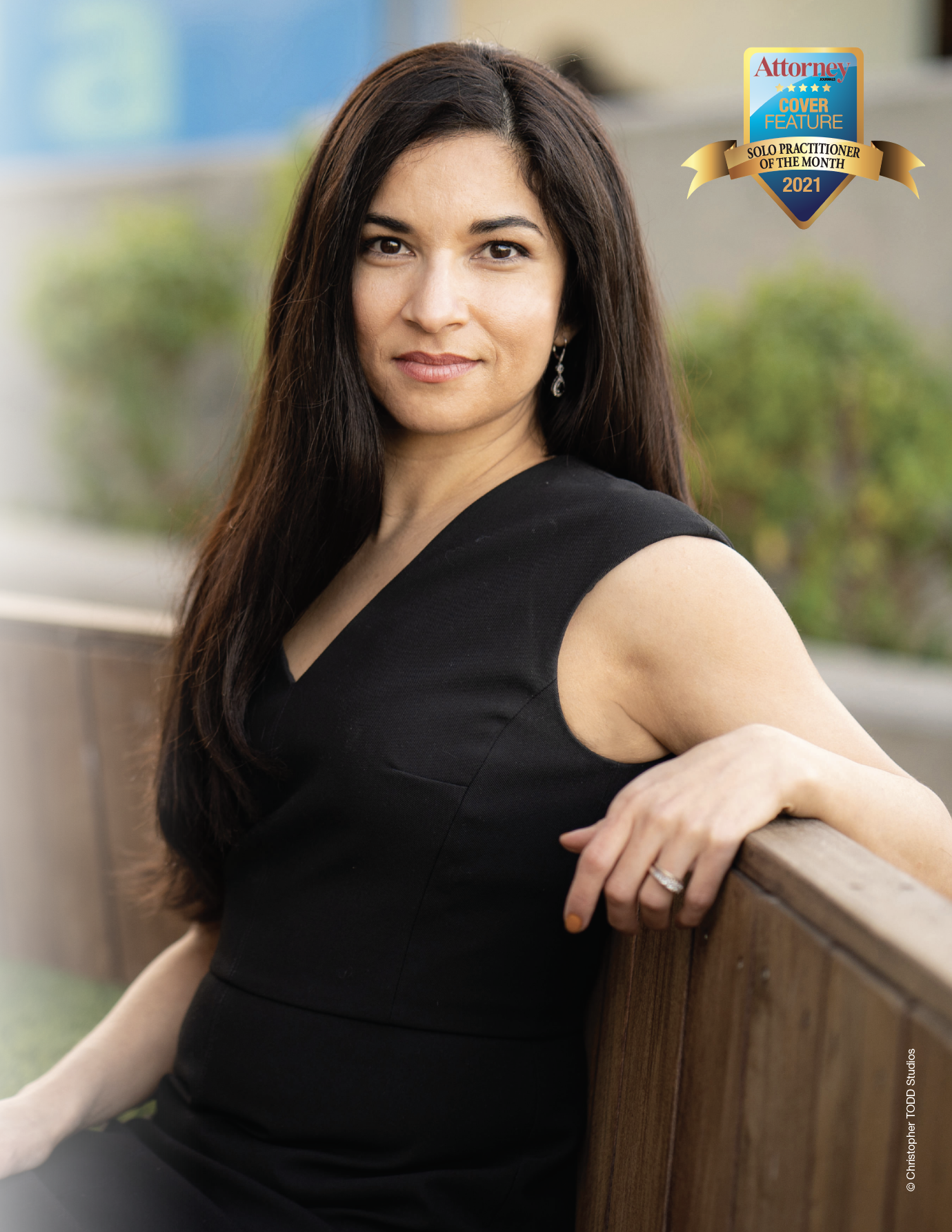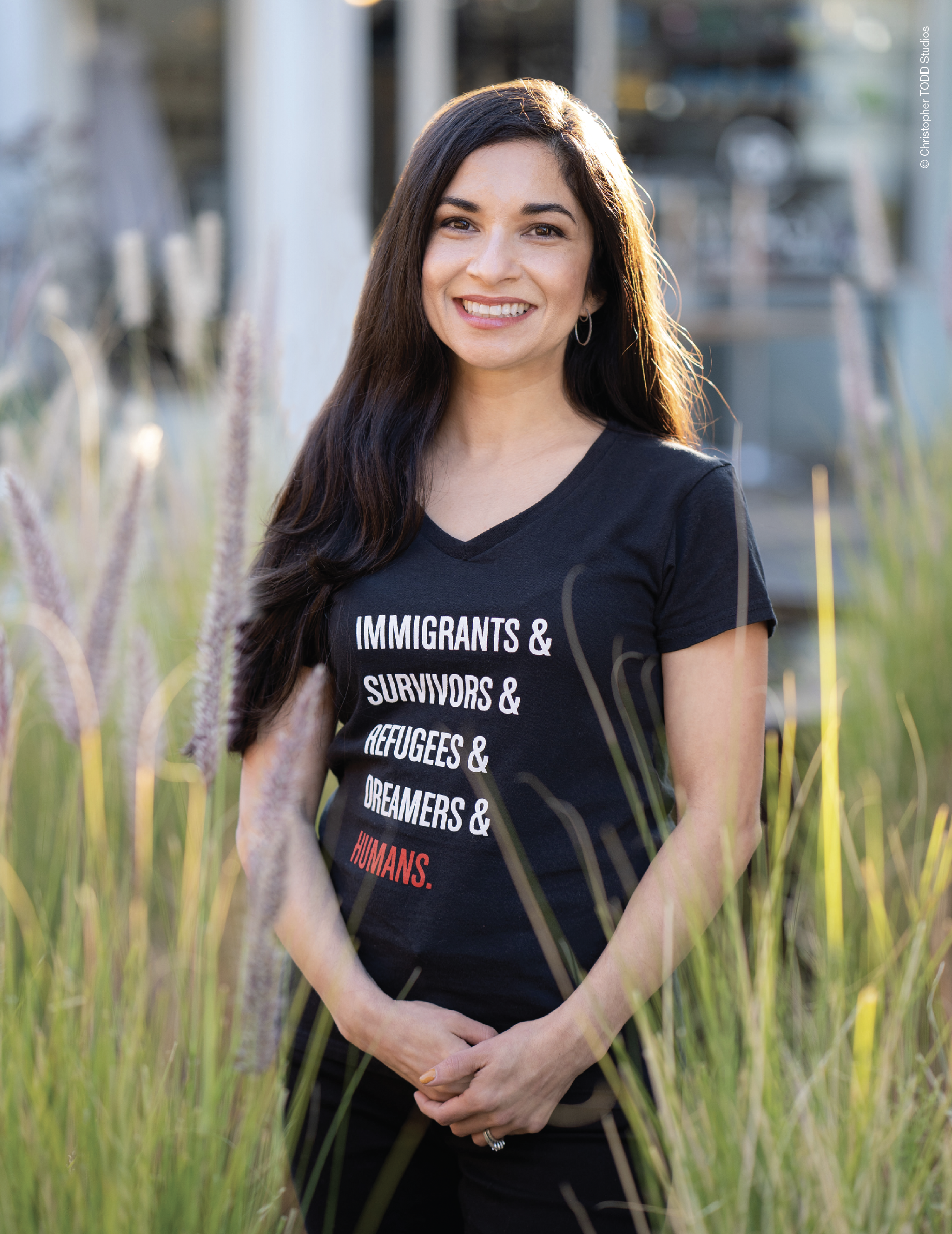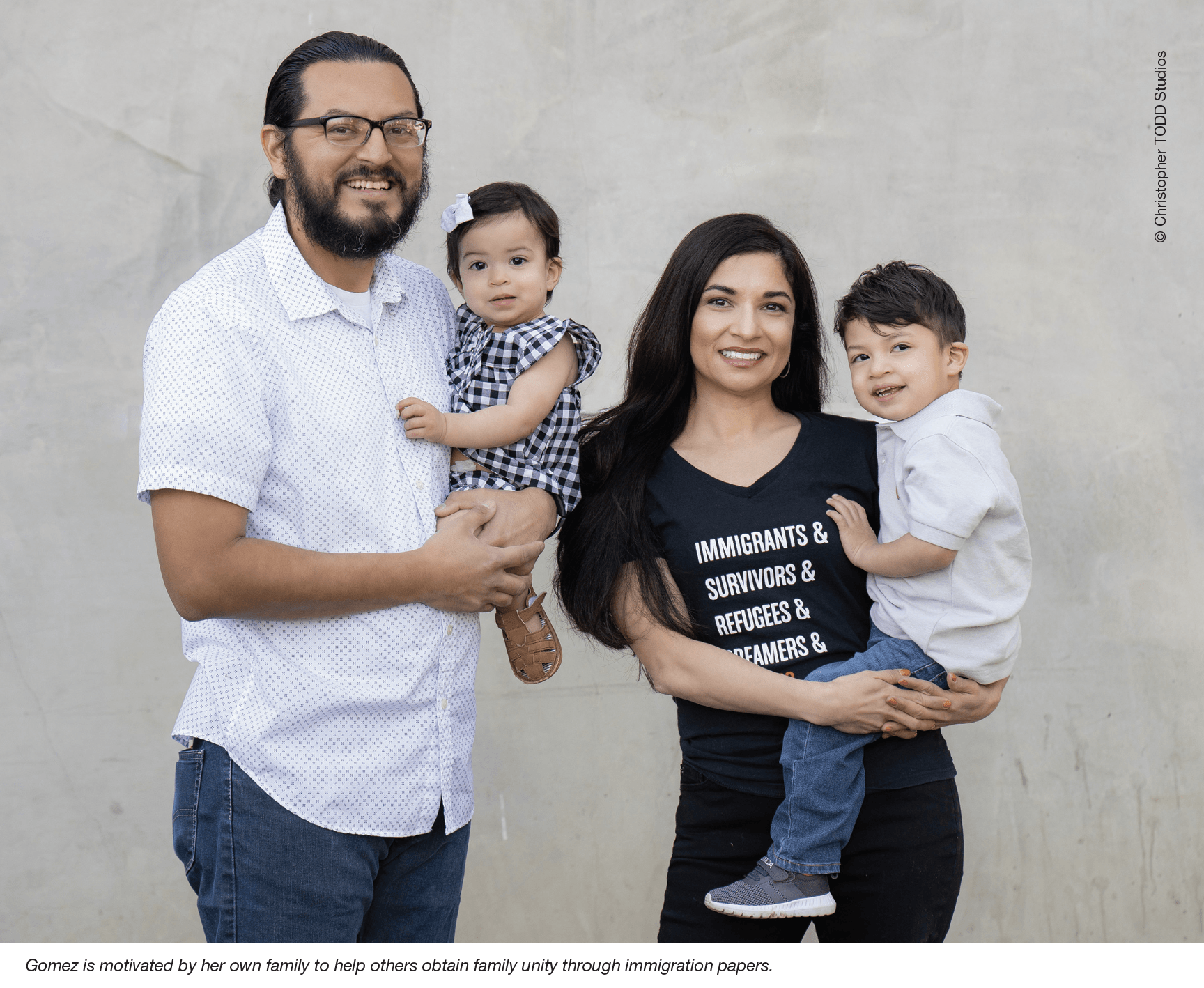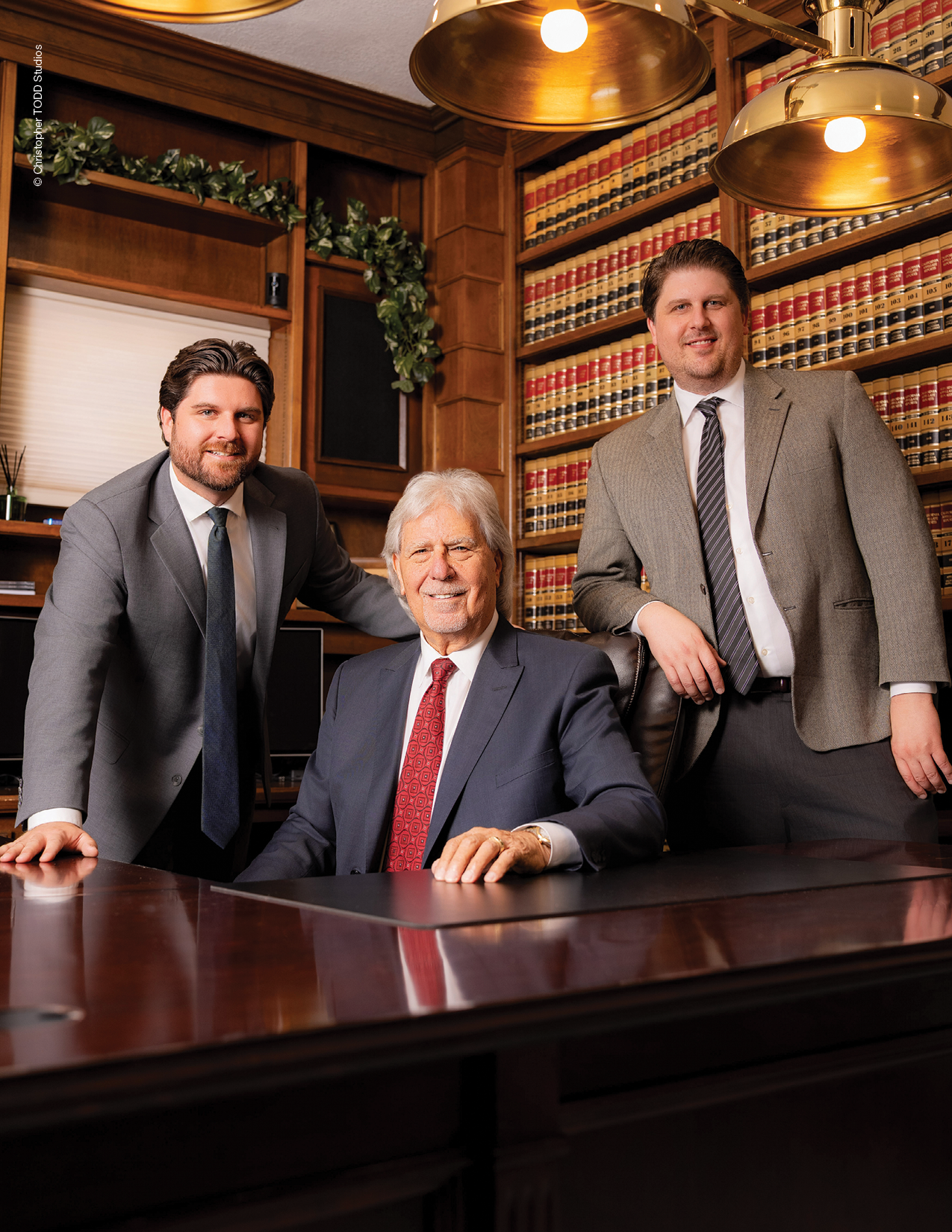Helping Dreamers Achieve the Dream – Belen T. Gomez
Contact
Law Office of Belen Gomez, APC
Inland Empire Office
6809 Indiana Avenue
Riverside, CA 92506
2400 E. Katella Avenue, Suite 800
Anaheim, CA 92806
(714) 449-1581
(951) 299-0114
The boutique firm’s niche and focus is immigration law—especially family-based petitions, working with DREAMERS (young people brought to the U.S. as kids), and also working with survivors of crimes.
Belen Gomez founded the firm in 2012 and incorporated the office in 2015. Currently, she is the solo attorney working with paralegals and an administrative assistant. Due to the high demand for immigration law services and her own considerable skills and experience, approximately 80 percent of her business is by referral. She and her staff are bi-lingual.
Belen understands the nuances and relationship of immigration law with other areas of law and how those areas can affect a client’s case. These areas include tax, criminal, constant policy changes under different administrations, working with various agencies (USCIS, National Visa Center, US consulates abroad, the immigration court (Executive Office of Immigration Review), the Board of Immigration Appeals, even private immigration detention facilities). Although immigration law is federal law, state and local laws can dramatically affect her clients as well, so she often advocates for a client at many agencies. For example, many of her clients are survivors of crimes, which requires her to work closely with local police agencies to certify that the client was a victim and to help the authorities investigate the crime.
Her commitment to her clients often extends well beyond legal representation. Belen cites as an example the case of an 18-year-old woman from Central America who was in immigration detention after she had made the incredibly hazardous journey to the U.S. She needed help in her bond hearing. Upon winning it she was going to be released in the middle of the night, but in a country she didn’t know, and thousands of miles from her family.
Gomez told her family to buy the woman the plane ticket and that she would make sure that she made it to her destination safely. “She had already been through so much, and was fleeing from danger,” Gomez says. She waited for the woman to be released from detention late into the night. The woman had been in the same clothes throughout the multi-week journey. She carried her things in a clear plastic bag and Gomez could see she had a little boy’s toy. Her nephew had come with her, but they had been separated by immigration. Gomez got her some clean clothes (she had to cut her other pants off because an ankle monitor was put on her), fed her and took her to the airport. She safely made the last leg of her journey with the family member she knew in the US.
Gomez says, “I feel like I make a huge difference for folks. It is an extremely fulfilling feeling. Our work provides stability to entire families for generations. Children can stop fearing that their parent will be taken one day, and spouses can be with their partners. People who already call this country home and are our neighbors can feel like they can further invest in this country. Most importantly, the foreign national client can finally feel like they belong because they do belong.”
Immigration Law—A Natural Evolution
Gomez says her focus on immigration and related law was not so much a conscious decision as a natural evolution.
She is a third generation Mexican American. “I have always been interested in my family’s history and its relation to U.S. history, and was inspired by the civil rights movement. My own family has been a part of the U.S. for a long time; however, they experienced much discrimination.” Early on she felt a drive to help communities that have historically lacked full access to the legal systems.
Gomez says, “I want the client to feel empowered with their specific case process. If they don’t qualify for an immigration benefit, I let them know and strategize with them some things that might help them in the future. I want them to feel like they can ask me questions and be open to tell me things that might affect their case.”
She developed considerable experience in immigration law while in law school. As a newly licensed attorney, she borrowed $700 for an office deposit and opened her own firm. Her business immediately took off.
“I had no idea how to run a business but knew that I would provide quality legal services to my clients. I have a boutique practice that allows me to get to know my client’s family. Their case is not only their own case but has huge repercussions on their family: whether their kids will grow up with their mom, whether that young person will be able to go to college. The job has ramifications far beyond a legal decision,” she says.
Her clients generally fall into three basic categories: family petition cases, special cases for victims of crimes, and DACA cases.
Family petition cases involve a family member who is a lawful permanent resident or a US citizen and who wants to petition for their family members to become lawful permanent residents. Sometimes the family member is already in the U.S. (and has been for many years), and sometimes the person lives abroad. The most popular are a spouse petitioning for their spouse and where a 21-year-old US citizen petitioning for their parent who doesn’t have papers.
Special cases for victims of crimes are generally U visa and VAWA (Violence Against Women Act) cases. Gomez has trained on working with survivors of trauma and cross-cultural considerations. The U visa is for victims of certain crimes that have helped with the investigation or prosecution of that crime. In addition to providing clients stability so that they can recover, it also helps communities stay safe because there isn’t fear by a vulnerable population of reporting crimes. VAWA helps survivors of domestic violence petition for lawful permanent resident status. This option allows survivors to not have to stay in an abusive relationship out of fear of deportation.
DACA provides options for people brought to the U.S. as children. “These are a lot of fun. Young people with so many dreams in the country they consider home are finally recognized and able to get work cards to provide for themselves, their education, and their families,” Gomez says.
A recent VAWA case showcases Gomez’s dedication, case management style and sometimes innovative approach to solving her clients’ legal challenges. A young woman approached Gomez saying she was married to a citizen and wanted to know her options. Gomez explained the woman’s situation and her options for obtaining lawful permanent residency.
The woman then revealed that her husband had been emotionally abusive. She feared that she didn’t have any protections from being deported if she left him—he was manipulative and had threatened to call immigration on her. She would then be separated from their daughter, who was a U.S. citizen.
Gomez explained the VAWA process, about petitioning for herself due to her husband’s emotional abuse. Although at first hesitant because she didn’t want to cause any harm to the husband, she moved forward in this case. Gomez kept her promise to stay with the woman throughout the process, which took several years. During that time Gomez got her a work card and she was able to leave her husband and build up her self-esteem. She returned to the office as a totally different, much happier person. Gomez represented her in her immigration interview at the local office and her client was approved on the spot. The woman shared that she was so excited to finish college, have a career that would make her daughter proud, and become a citizen.
Clients appreciate her personal touch and aren’t hesitant to offer praise. Perry McBride, a recent client, shares:
My wife and I had been looking for an immigration attorney for a while. We decided to go with Belen because she was very personal, explained very well what the process incurred and what it took. She also made us feel very comfortable.
Serving the Community in the Community
Gomez believes in serving her community by being actively engaged in and supporting different facets of that community. She and the members of her office volunteer for local organizations and at Catholic churches. She is frequently asked to provide “Know Your Rights” expertise, give information on immigration options families might have, and give free mini consultations. She has hosted workshops and consultation days as far away as Mecca, a rural area where there are many farmworkers. She has traveled to Tijuana for the weekend as a volunteer for the nonprofit organization “Al Otro Lado” that helps migrants at shelters.
She has served as the Chair of the Orange County Bar Association, Immigration Section in the past.
Gomez sees her future continuing in serving the community through volunteer service and especially through her legal skills. The balance she has achieved serves both areas of her life well. “I do not need to scale my practice and take many more cases than I do now—as much as I love this work, it is very demanding and can take a toll on many attorneys. I want to remain intentional in the number of cases I take so that I can sustain this work for a long time,” she says.

